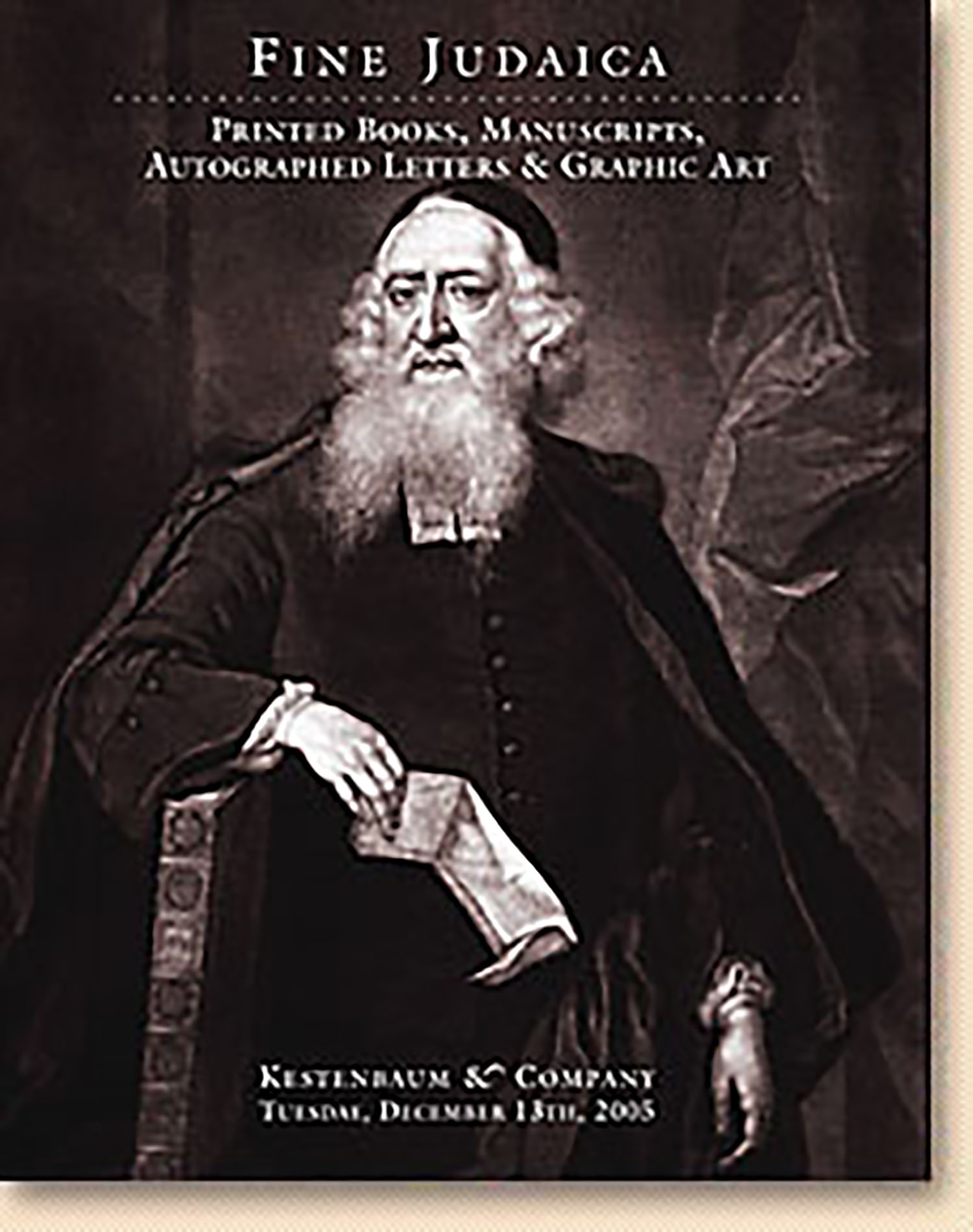Pirush Chamesh Megiloth [commentary to the Five Scrolls, Psalms, Proverbs, Job, Daniel, Ezra & Nehemiah and Chronicles]

AUCTION 31 |
Tuesday, December 13th,
2005 at 1:00
Fine Judaica: Hebrew and Other Printed Books
Lot 289
YACHYA, JOSEPH BEN DAVID IBN.
Pirush Chamesh Megiloth [commentary to the Five Scrolls, Psalms, Proverbs, Job, Daniel, Ezra & Nehemiah and Chronicles]
Bologna: The Company of Jewish Silk Weavers 1538
Est: $1,500 - $2,000
PRICE REALIZED $1,500
Best known for his commentary to the Pentateuch, “Torah Or,” Joseph ben David ibn Yachya (1494-1534), scion of a distinguished Spanish-Portuguese family, took sharp exception to Maimonides’ rationalist philosophy and universalism, aligning himself with Judah Halevi’s doctrine of the chosenness of the Jewish People as expounded in the Kuzari. Thus, it is little wonder then that church censors found his works so pernicious. Joseph’s son, Gedaliah ibn Yachya, author “Shalsheleth ha-Kabbalah,” a classic of Jewish historiography, relates that after his father’s passing, Church censors burnt the deceased’s yet unpublished manuscripts.
Israel Zinberg has suggested that the key to understanding the author’s exclusivist worldview lies in his family history of near martyrdom. His namesake, his grandfather Joseph ben David, was forced to flee Portugal for Spain and later for Italy because of his steadfast refusal to succumb to conversion to the dominant religion of Christianity. Neither did Italy prove much more tolerant of the Ibn Yachya family’s “Judaizing” tendencies. See I. Zinberg, A History of Jewish Literature, Vol. IV (1974), pp. 56-59; EJ, Vol. VIII, cols. 1207, 1210.
The seventh of only nine books printed by the Jewish Silk Weaver’s Guild. See Amram, The Makers of Hebrew Books in Italy (1963), pp.232-35
